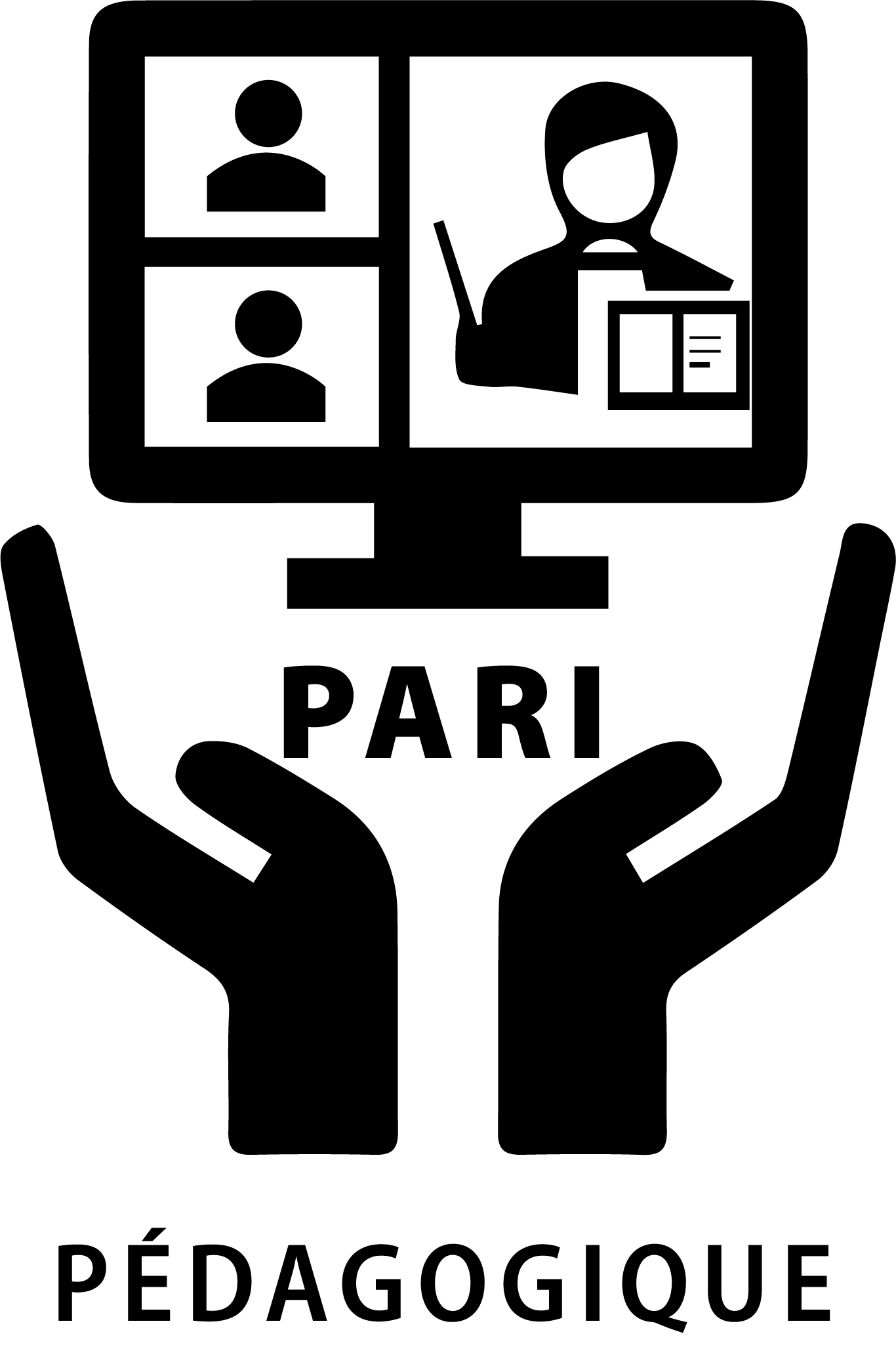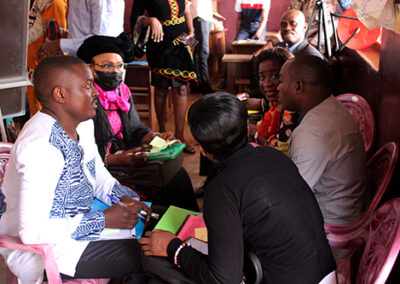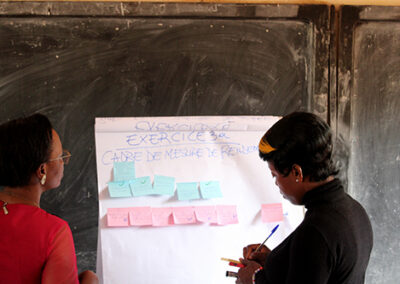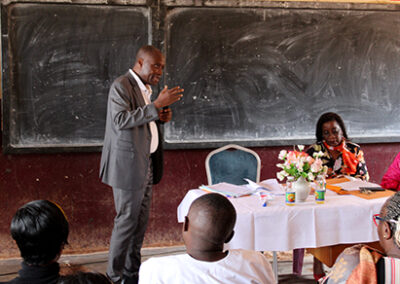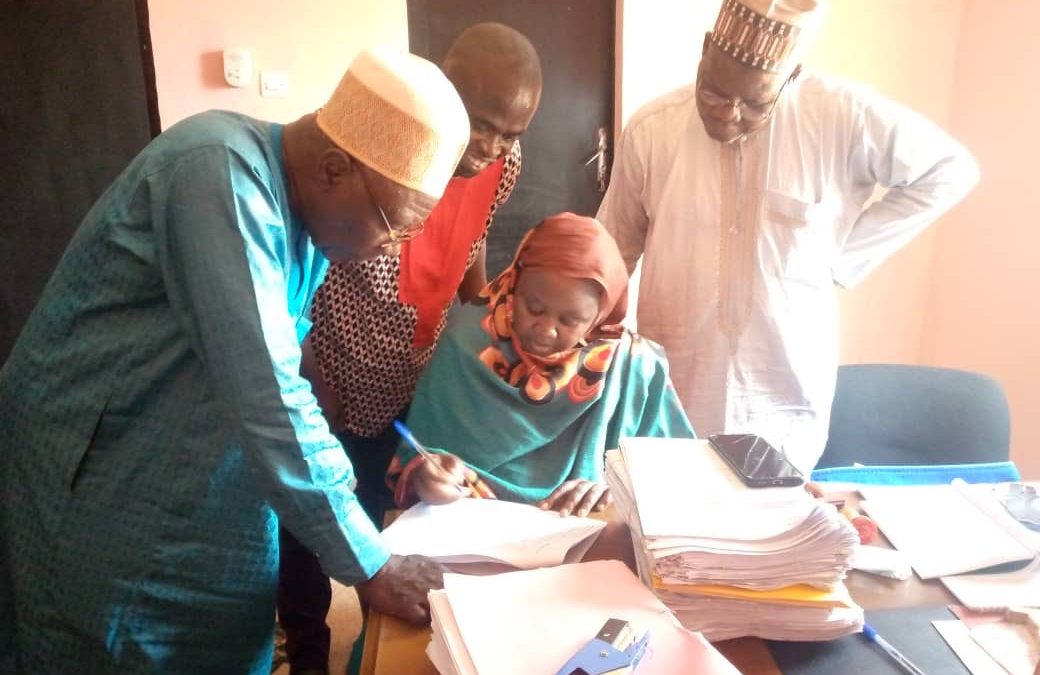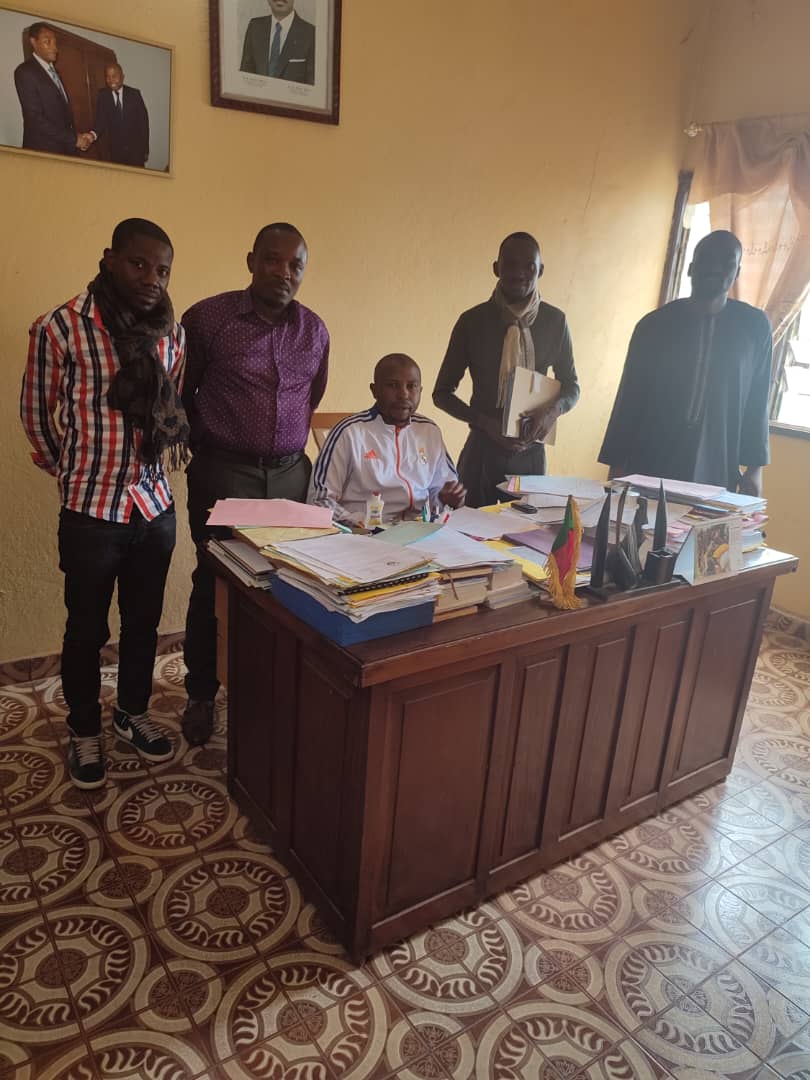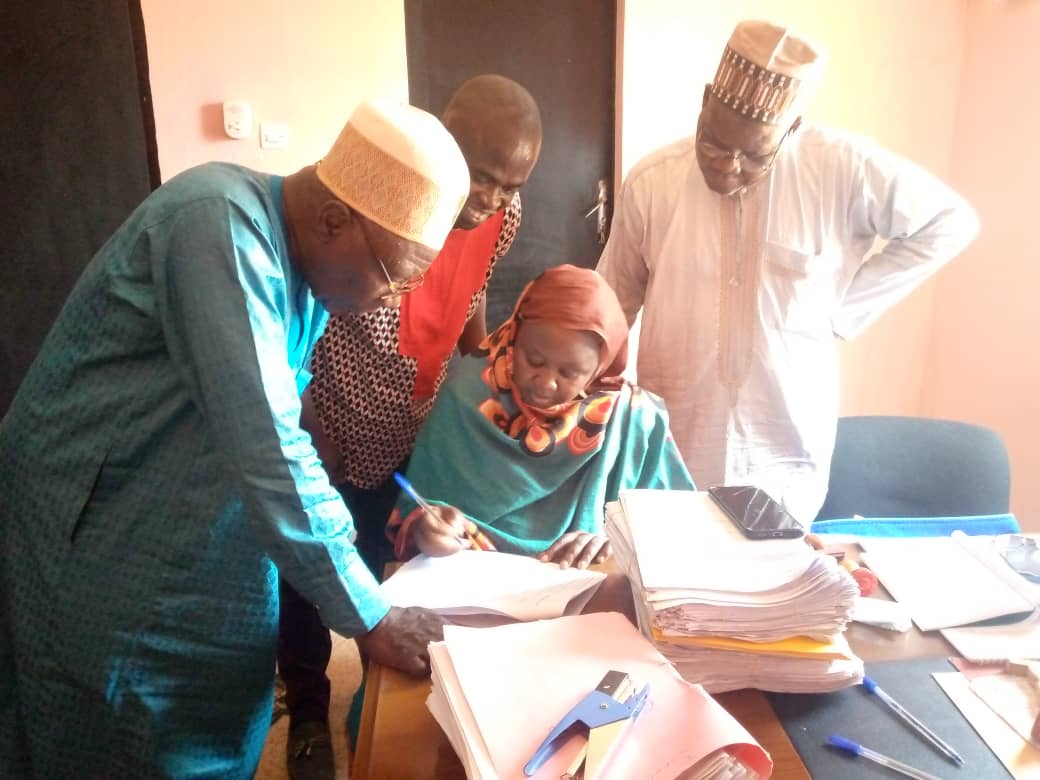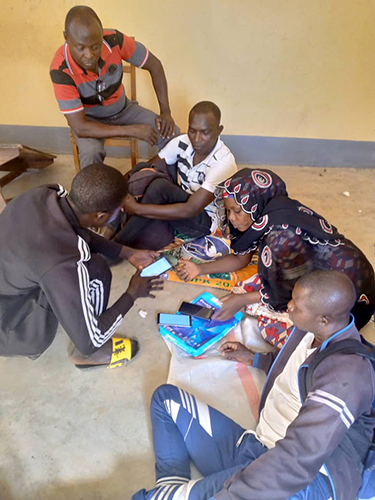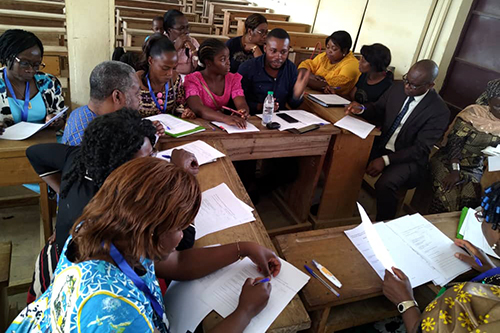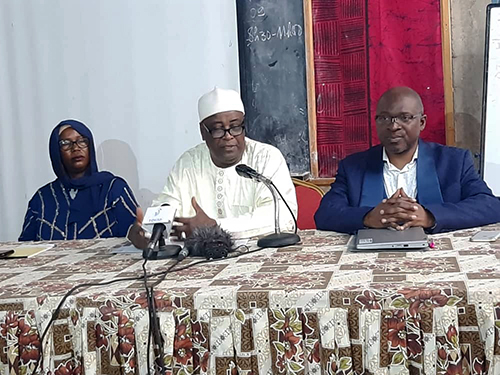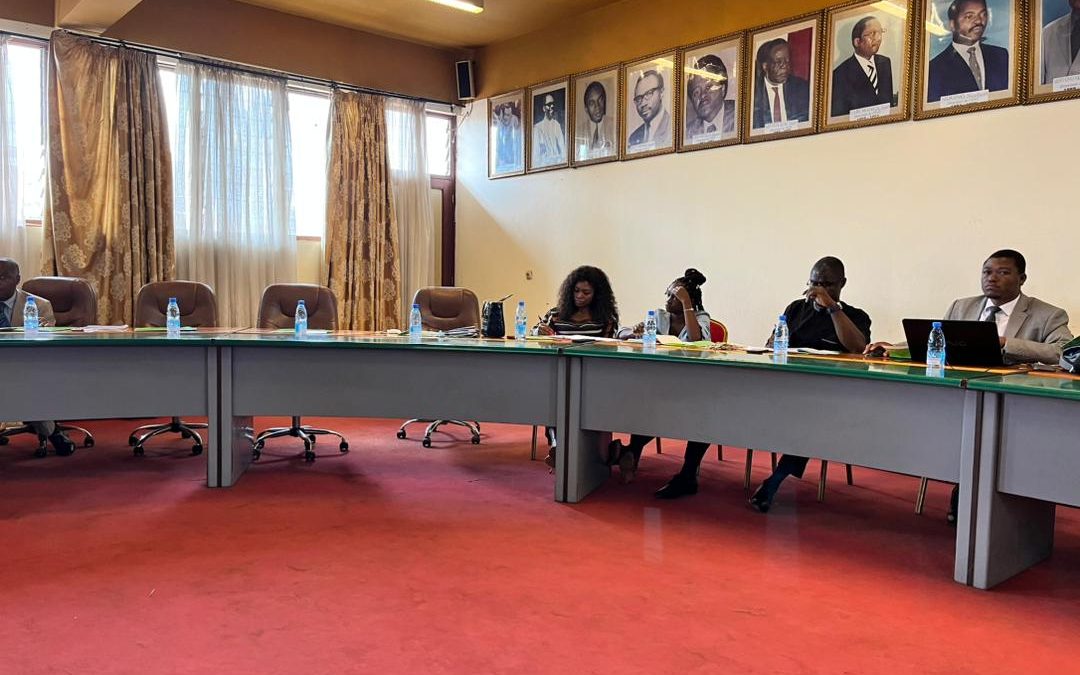
The team of the pedagogical bet in training
The members of the project pari pédagogique took part in a capacity building workshop on database and website for data exchange and dissemination of project information.
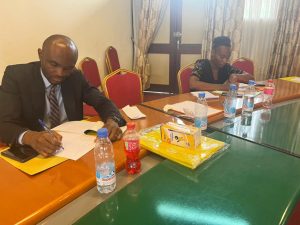
The IRAP team in training
This workshop, which took place on January 11, 2023, at the ENS of Yaoundé, aimed at proposing guidelines for improving the visibility of the IRAP website.
The related lessons were about :
- The basic principles of how a website works;
- The design of a website ;
- The publication and updating of information on the website on a regular basis.
